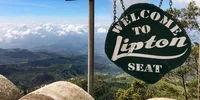Posted: April 6, 2023 | Last Update: 01. Sep 2023
Is Sri Lanka worth visiting? Pros and Cons
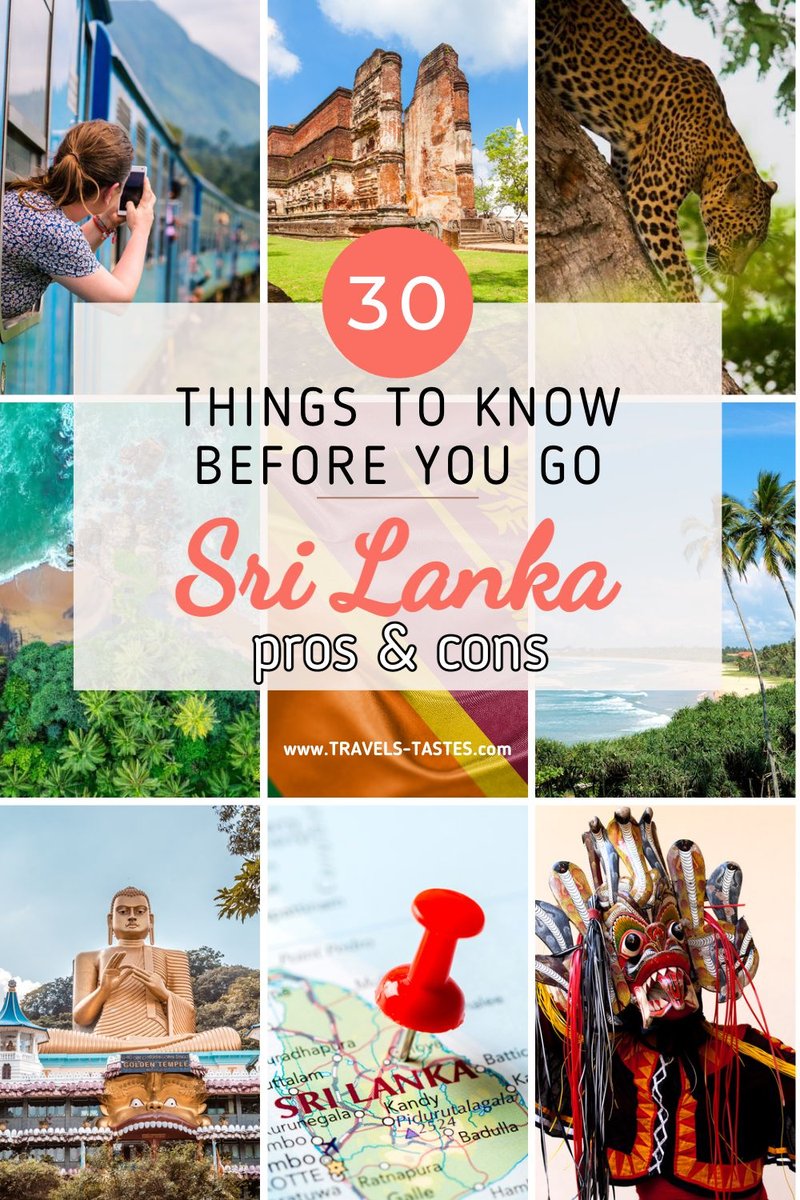
Forbes has named Sri Lanka as one of the top destinations this year. And with all the hype and beautiful pictures being shared, especially on social media, it can become increasingly difficult to weigh pros and cons. In this article, we give an unbiased overview of the pros and cons of traveling to Sri Lanka. Read on to find out if Sri Lanka is the right destination for you.
Will you love ‘The Pearl of the Indian Ocean’? The island nation is a paradise on earth that promises to enchant and captivate travellers from all walks of life. Nestled in the heart of the Indian Ocean, it boasts an incredible diversity of attractions, ranging from lush green forests and cascading waterfalls to ancient temples and colonial architecture.
The PROs
Here are some reasons why you should visit Sri Lanka:
1. Natural Beauty
Sri Lanka is home to some of the most breathtaking landscapes in the world, from mist-covered mountains to pristine beaches, crystal-clear waters, and wildlife-rich jungles.
The country's diverse terrain also includes tea plantations, waterfalls, and safari national parks, where visitors can spot leopards, elephants, and other exotic wildlife.
Sri Lanka's natural beauty offers endless opportunities for adventure and relaxation, making it a perfect destination for nature lovers.
For more on stunning vistas and beautiful scenery, read my article on Lipton's Seat, one of the world's top 10 viewpoints.
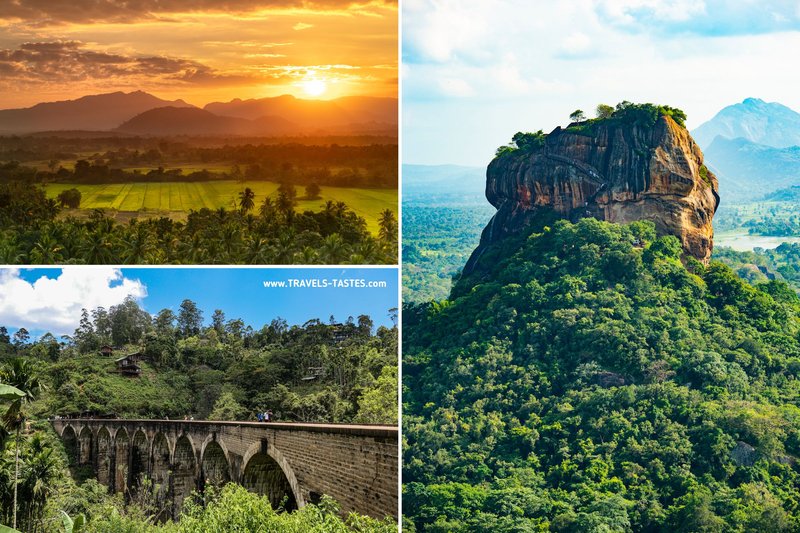
2. Cultural Richness
With a history spanning over 2500 years, Sri Lanka has a rich cultural heritage that is a product of its long and complex history and which has been influenced by various ethnic and religious groups.
From ancient temples and sacred sites to traditional dances and festivals, Sri Lanka offers a unique glimpse into a world that is both exotic and enchanting.
The island nation is home to eight UNESCO World Heritage sites, including the ancient cities of Anuradhapura and Polonnaruwa, which showcase the country's rich history and cultural significance.
Wherever you go, you will see stunning temples, beautiful stupas and monuments reminding you of the country’s rich history and culture.
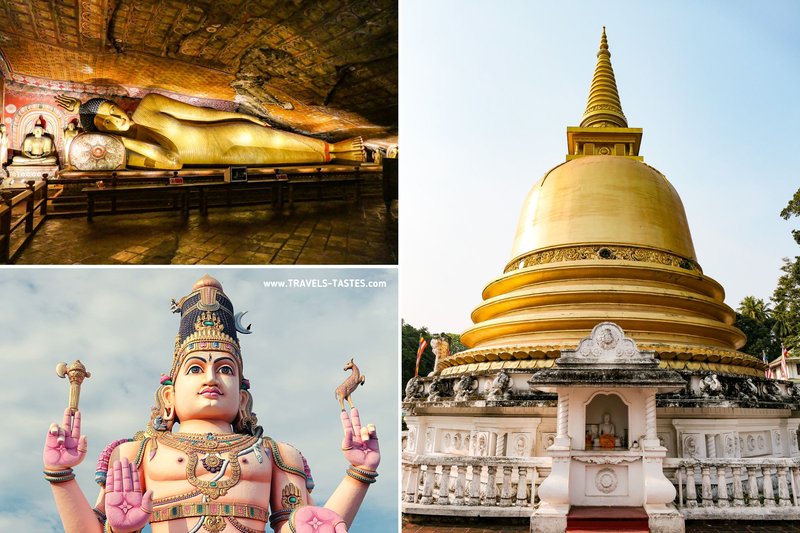
3. Adventure Opportunities
If you are an adventure enthusiast, Sri Lanka offers a wide range of activities to keep your adrenaline pumping.
From hiking and trekking to surfing, snorkelling and scuba diving, you can find it all here.
The hilly terrain also offers thrilling experiences such as white-water rafting, rock climbing, and ziplining. Hikers and climbers can explore the country's misty highlands on foot, climb the dramatic Sigiriya rock fortress, or take on Devil’s Staircase or the challenging Knuckles mountain range.
Whether you're a seasoned adventurer or just looking to try something new, there is no doubt Sri Lanka's outdoor offerings will provide an unforgettable experience.
Find all the activities to fit your travel style here * (affiliate link)
4. Delicious Cuisine
Sri Lankan cuisine is a delightful blend of spices, flavours, and textures that is sure to excite your taste buds.
From fiery curries to sweet desserts, Sri Lanka's culinary offerings should not be missed. The island’s location on the ancient spice route has contributed to a rich culinary tradition that has been influenced by Indian, Malay, and Portuguese cuisines.
If you are visiting, make sure to sample a wide range of iconic local dishes, including the local rice and curry, hoppers (string noodles), kottu, and seafood delicacies, as well as bibikkan (a coconut cake) and, if in the North, Rasavalli (sweet purple yam pudding).
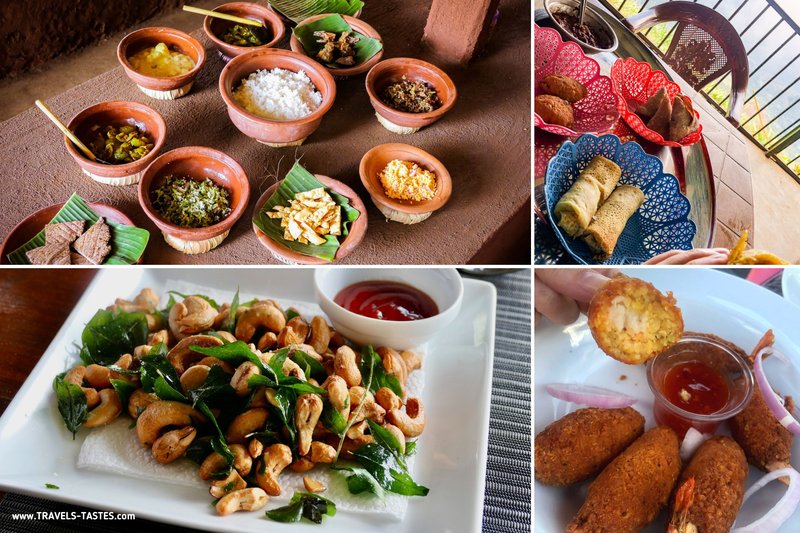
5. Suited to every travelling style
Sri Lanka is a versatile travel destination that can cater to all types of travellers, making it an attractive choice for those seeking a variety of experiences.
For thrifty backpackers, there are opportunities for adventures, explorations and accommodations on a budget. Luxury travellers can indulge in high-end hotels, like the Melheim Resort, and sophisticated spas, while package holiday makers can enjoy organised tours or all inclusive beach stays.
Sri Lanka's diverse landscape and cultural offerings provide a unique experience for every type of traveller, whether you prefer beach lounging, wildlife safaris, or exploring ancient ruins.

Book your once in a lifetime Sri Lanka experience with our trusted partners TourRadar*
*affiliate link
6. Affordability for budget travellers
The most expensive part of your trip to Sri Lanka is getting there.
Once you are on the island, it is very affordable to travel around if you are on a budget: you can rent a car from as little as 30$ a day, a tuk-tuk even cheaper for about 15$ and train and bus fares are very cheap and available from about 1$!
Food from street vendors is delicious and can cost as little as 20ct for a roti or 50ct for a delicious samosa or roll.
But even in standard price restaurants and hotels a meal will rarely cost you more than 10$. Budget accommodation start at around 10$ a night.
7. Diverse Religion
Sri Lanka is a melting pot of religions, boasting a long history of different beliefs coexisting together.
While over 70% of the population are Buddhist, there are large Hindu enclaves (predominantly in the North and East of the island) as well as a lower number of Christians and Muslims.
This religious diversity is reflected in the country's many temples, churches, and mosques, which offer a unique glimpse into the country’s vibrant cultural landscape.
Exploring these sacred sites is a must-do for anyone interested in immersing themselves in the local traditions and customs.
All religions are welcome in Sri Lanka and unlike some other countries, visitors feel safe to openly express their personal faith.
If you are wondering what the etiquette for visitors to temples is, please read my guide to Buddhist and Hindu temples.
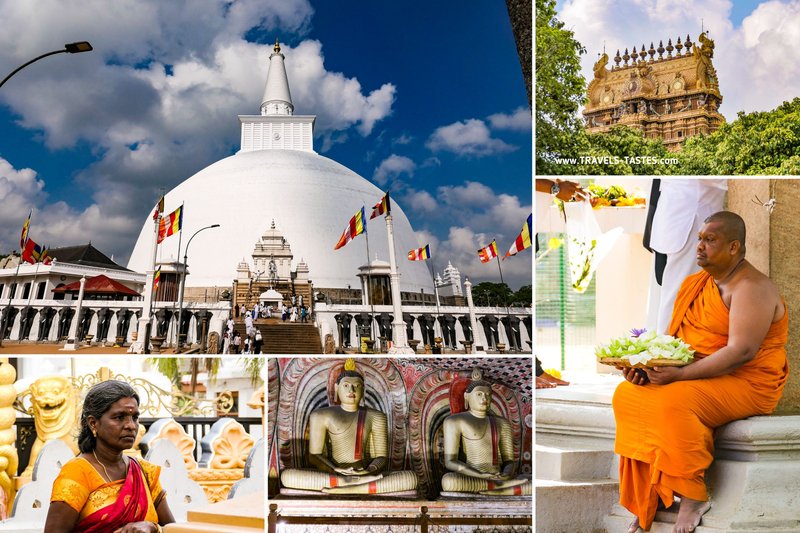
 TOP 9 Best Temples you Must Visit in Sri Lanka
TOP 9 Best Temples you Must Visit in Sri Lanka
 Dambulla Cave Temple and Golden Temple: a must-see destination
Dambulla Cave Temple and Golden Temple: a must-see destination
9. Colonial History
With a colonial history that spans over 400 years, from the arrival of the Portuguese in the early 16th century to the departure of the British in 1948, you simply can’t deny their impact that can still be seen in Sri Lanka’s architecture, cuisine, and culture.
The country's education system, legal system, and administrative structure were all shaped by the British colonial legacy, which is still very present in many aspects of modern Sri Lankan society.
History buffs can explore colonial-era forts, churches, railways and other historic buildings, as well as learn about the impact of colonialism on the country and its people.
10. English is widely spoken
Another perk of Sri Lanka’s colonial history is, that has influenced the country's language. Being a member of the Commonwealth of Nations, English is widely spoken alongside the official languages, Sinhala and Tamil.
This means that as a visitor, you can (usually) effortlessly explore the country and communicate with locals which will make your experience so much more enjoyable and immersive.
In most cases, the language barrier won't be an issue. On those occasions the locals don’t speak English, you will be able to communicate with your hands and smiles - the most international language of all.
11. Friendly Locals
The friendly and hospitable locals are one of the highlights of any visit to Sri Lanka.
Known for their warm smiles and willingness to share their culture with visitors, Sri Lankans are always happy to engage in conversation and offer helpful tips for navigating their country.
Whether it's a chance encounter in a bustling market or a friendly chat with a tuk-tuk driver, the locals' welcoming spirit is sure to leave a lasting impression.
One of the best ice breakers is a friendly chat about Cricket, a sport most Sri Lankans are very passionate about.
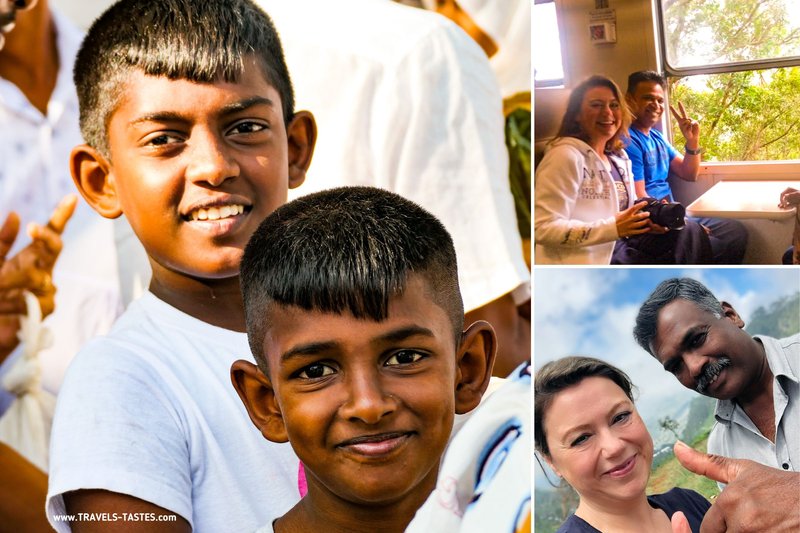
12. Tropical Climate
Whether you are looking to escape the cold winter in other parts of the world or simply want to enjoy the benefits of a hot climate, the warm weather in Sri Lanka is a major draw for all travellers seeking a tropical paradise.
With temperatures averaging around 27°C (80°F) throughout the year, visitors can enjoy the country's beautiful beaches, lush jungles, and ancient temples in comfortable and sunny conditions.
For those who prefer a lower temperature or seek a respite from the heat, the country’s coldest city is Nuwara Eliya, with temperatures typically ranging from 12-20°C (54-68°F) due to its elevated location in the central highlands.
13. Amazing Wildlife
Sri Lanka is home to a stunning array of wildlife, making it a paradise for wildlife lovers and safari enthusiasts alike.
From majestic elephants and elusive leopards to exotic birds and playful primates, the island's diverse ecosystems are home to an incredible variety of species.
Game drive safaris and bird watching tours are a popular way to explore these parks and witness these animals in their natural habitats, with Yala National Park and Udawalawe National Park being among the most popular destinations.
But you do not always need to venture into the national parks to see wildlife up close: Sri Lanka’s beautiful birds can be seen everywhere and chances are you will come across lots of monkeys, squirrels and lizards on your daily explorations of the island.
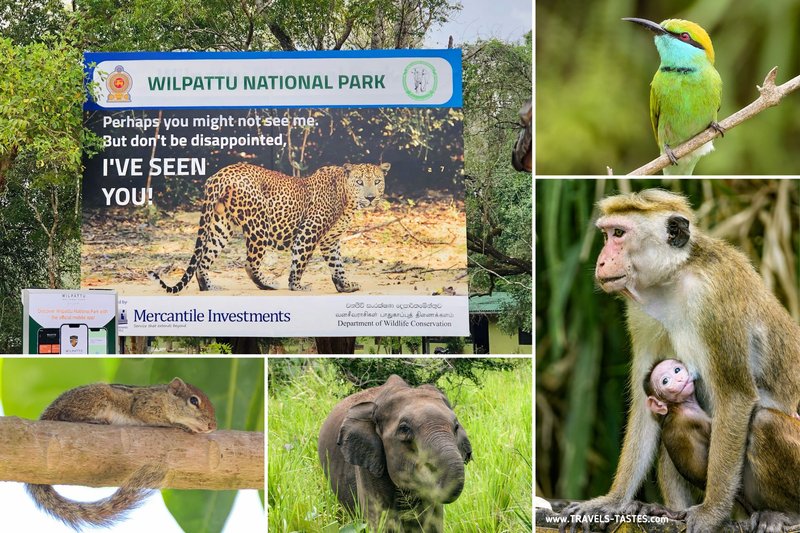
Find your perfect safari tour on TourRadar*
affiliate link
14. Watersports and Beaches
With warm, sunny weather and miles of beautiful coastline, Sri Lanka is a water sports lover's dream destination.
From surfing and kiteboarding to scuba diving and snorkelling, there are countless opportunities to explore the ocean and have an unforgettable adventure. The island is dotted with stunning beaches, each with its own unique charm and atmosphere.
The beaches of Mirissa, Unawatuna, and Arugam Bay are particularly popular among surfers and water sports enthusiasts, while Trincomalee and Hikkaduwa offer some of the best snorkeling and diving opportunities in the country.
Sri Lanka is also a top destination for whale watching, with opportunities to spot majestic blue whales, sperm whales, and dolphins in the waters off the southern coast.

Our partner Viator* offers tours and activities to match your personal travel style.
*affiliate link
15. Tea Culture
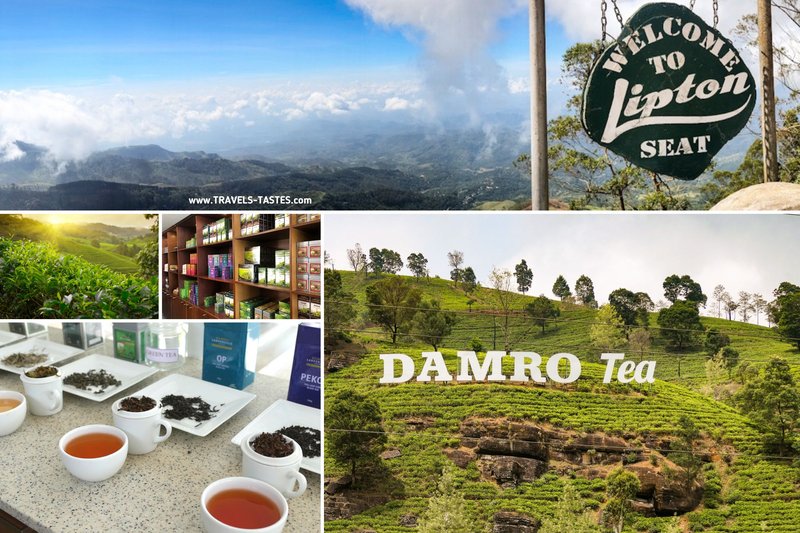
Sri Lanka's 'Ceylon Tea' industry is world-renowned, and a visit to this island nation wouldn't be complete without experiencing its tea culture.
When visiting the island’s central highlands, there is more to do than just admiring the tea plantations dotting the scenic hillsides from afar: you can also take a tea factory tour and witness the process of tea production from leaf to cup.
The tea estates offer stunning views, and visitors can enjoy a leisurely stroll or hike among the lush green tea field before sampling some of the world’s finest Ceylon teas.
Proper tea enthusiasts can also visit the tea museums and learn about the fascinating history of Sri Lanka's tea industry, from its roots in colonialism to its present-day success as one of the world's top tea exporters. The most iconic spot to visit for its views and for your bucket list surely is Lipton’s Seat, be sure not to miss my article on it.
16. Ayurveda & Yoga
Ayurveda is a holistic healing system that has been practiced in Sri Lanka for thousands of years. It focuses on the balance of the mind, body, and spirit and uses natural remedies and treatments to achieve this balance. Sri Lanka offers a range of Ayurvedic experiences, from spas and massages to full retreats in Ayurvedic villages that include organic Ayurvedic food, personalised consultations and treatments.
As a country with a long history of Buddhism and meditation, Sri Lanka has been a popular destination for yoga enthusiasts from around the world.
Whether you're a beginner or an experienced practitioner, you'll find a wide range of yoga retreats and classes to choose from. So, if you're looking for a place to relax, unwind, and connect with your inner self, Sri Lanka might be the right destination for you.
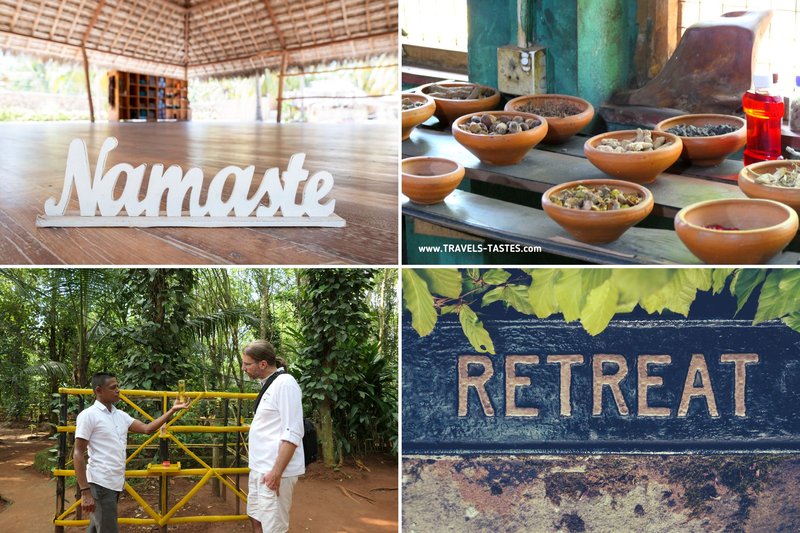
17. Scenic Train Rides
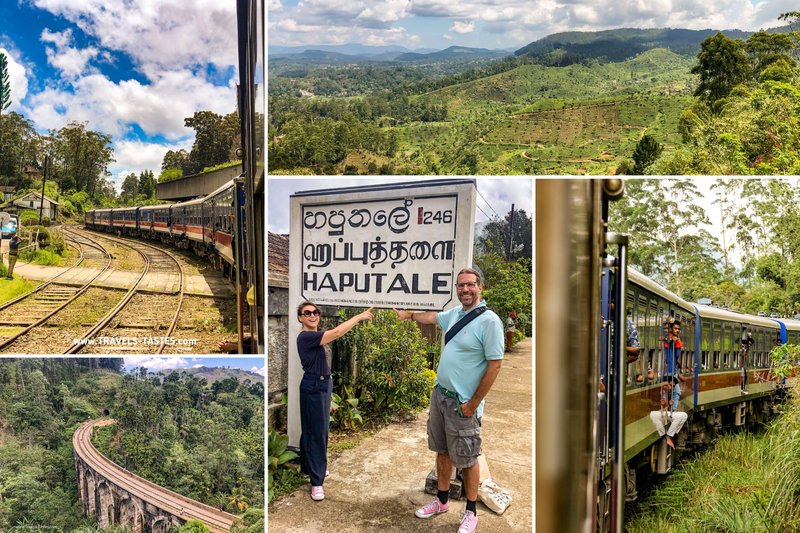
One of the best ways to take in the breathtaking natural beauty of this tropical island is by hopping on one of its scenic train rides.
Sri Lanka's railway system, which dates back to the British colonial era, offers an unforgettable experience of traversing through picturesque countryside, tea plantations, and remote villages, providing a unique perspective of the country's diverse landscapes and local way of life.
The Kandy to Ella train ride is often considered one of the most beautiful train journeys in the world. The train winds its way through the misty hills of Sri Lanka's central highlands, passing through verdant tea plantations, lush forests, and terraced fields.
The route is dotted with charming colonial railway stations, including Nanu Oya, Haputale, and Ella, and its highlight is without a doubt the world famous Nine Arches Bridge.
Hooked and ready to go? :) If so, find your once in a lifetime Sri Lanka experience tour today.*
*affiliate link

However, it's also important to note that Sri Lanka may not be the ideal destination for everyone. Here are some reasons why you might want to think twice before travelling to Sri Lanka:
The cons
Here are some reasons why Sri Lanka may not be right for you
1. Political instability
Sri Lanka has had a history of political unrest and civil conflict. In 2022, the country suffered an economic and political crisis and while we felt safe to travel to Sri Lanka in 2023, several governments still issue travel warnings against it. The crisis in Sri Lanka as well as the pandemic has had a significant impact on the country's tourism industry, which was once a major source of revenue. If you are planning travelling to Sri Lanka, please stay informed about the current situation and follow safety guidelines to ensure a safe and enjoyable trip.
2. Health Concerns
As is the case everywhere you go, there are certain health concerns you need to be aware of before travelling to Sri Lanka:
Vaccines: it is recommended that you get vaccinated against hepatitis A and B, typhoid, and tetanus. Depending on your travel plans, you may also need vaccines for yellow fever, Japanese encephalitis, and rabies.
Dengue Fever, Malaria and Zika: Sri Lanka is a tropical country, and as such, mosquito precautions must be taken. Not only are the insect bites annoying, there is also a risk of being infected with Zika, Malaria and Dengue Fever (aka breakbone fever).
Leeches: Leeches are common in Sri Lanka's forests and can attach themselves to human skin, causing discomfort and potential infection. To prevent leech bites, wear long pants and socks when hiking, and consider using leech socks or applying salt to your skin. (I can tell you from experience that it is not a fun experience to have leeches all over your body.)
Respiratory issues: Air quality in urban Sri Lankan areas is a major concern due to high levels of air pollution from traffic, industry, and burning of solid waste and can have a significant impact on respiratory health, causing or worsening conditions such as asthma and bronchitis.
3. Traveller's Sickness
'Montezuma's Revenge', 'Bali Belly' or simply 'Food Poisoning': like any travel destination, there is a risk of food poisoning in Sri Lanka. Here are some things to keep in mind to avoid food poisoning when traveling to the island.
Hygiene: One of the main causes of food poisoning is poor hygiene, so it's important to be vigilant about where and what you eat. Avoid street food that looks unclean or has been sitting out for long periods of time.
Water: the main source of food poisoning is contaminated water. It's important to only drink bottled water (make sure it has the original seal on it, as Sri Lanka is known for rebottling water and glueing the cap) or boiled water, and avoid ice made from tap water. Brush your teeth with bottled or boiled water as well.
Fruits and vegetables: Sri Lanka is known for its fresh produce, but fruits and vegetables that have been washed in tap water can also be a source of contamination. Peel fruits and vegetables or wash them in bottled water before eating.
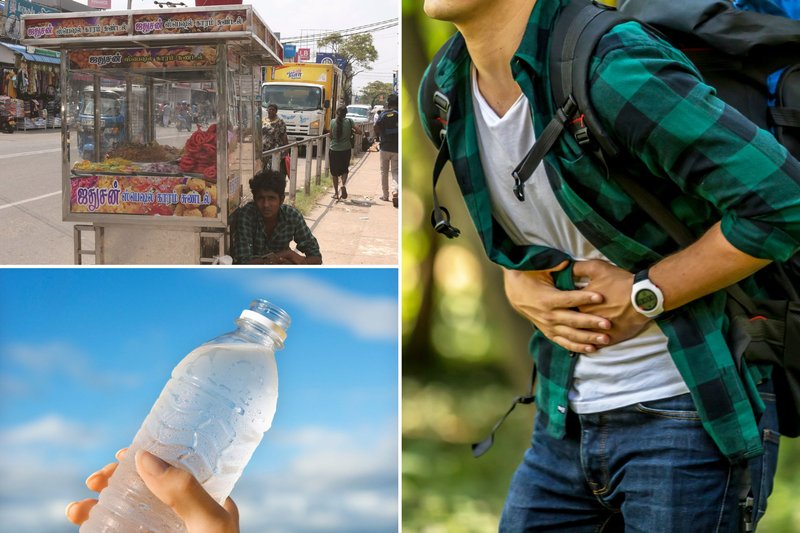
4. Food Intolerances & Allergies
Travelling with food intolerances and allergies can be a challenge, especially when there are no alternatives to local food.
While you can find some global restaurant chains in many travel destinations, this is not the case in Sri Lanka. If you’re looking for ‘safe options’ such as the known fast food chains, you will only find them in the major cities. In Sri Lanka, you may struggle to figure out whether or not a dish contains something you are intolerant of - for instance, we had soups labelled ‘vegetable minestrone’ or ‘vegetarian cream soup’ twice, and both times it contained either fish and shellfish or chicken.
If you are dependant on food being labelled correctly and in detail, you might find Sri Lanka a challenge.
5. Environmental Challenges
Sri Lanka, like many countries around the world, is facing a number of environmental challenges (including deforestation, habitat loss, and pollution), that have significant impacts on its natural resources and ecosystems.
Deforestation is due to the country's high demand for timber, as well as the clearing of land for agriculture and development. This has led to a loss of habitat for wildlife, loss of biodiversity, soil erosion, and an increase in greenhouse gas emissions.
Another major challenge is pollution, particularly in urban areas. The country's waterways and beaches are often contaminated with pollutants, such as plastics and chemicals, which can have a significant negative impact on marine life and humans alike.
6. Tourist Traps
There are many places in Sri Lanka that feel genuinely authentic, especially the North that is mostly untouched by international tourism. However, if you go to beach towns like Bentota, it soon becomes very touristy just like in many places. And where there are tourists, there are touts, the relentless vendors following you around, trying to sell you products and services.
In these places, restaurants will also charge a premium for food and drinks, bringing the price up to the same standard you might know from Europe or the US. Make sure to venture outside of the touristy places for a more authentic and budget friendly dining experience.
Another thing to be aware of is that your tuk-tuk or guide will receive a commission from wherever they take you, be that a restaurant, a souvenir shop, a yoga retreat or anything in between. This was a piece of information a shop owner happily shared with us when we told him we came by ourselves (we were offered higher discounts as we did not have to share that with the driver).
7. Roads and Transport Infrastructure
While Sri Lanka has made significant progress in terms of infrastructure, there are still areas of the country that are underdeveloped in this regard.
Driving seemingly short distances of under 50 miles can take several hours because most roads are narrow, winding, and poorly maintained.
Also, much of Sri Lanka's interior is mountainous, with steep hills and hairpin bends. This can make driving slow and difficult, especially in rural areas.
If you are prone to motion sickness, driving in Sri Lanka’s highlands might be a challenge for you - be sure to pack medication or stick to the easy routes along the coast.
8. Animal Welfare Concerns
For animal lovers, Sri Lanka is a great destination to see exciting wildlife in its natural habitat.
All the more sad, that the welfare of domesticated animals raises so many concerns. It is unavoidable to come across some very questionable practices when travelling the island.
One of the most prominent issues is the use of domesticated elephants and bullocks for tourism - elephants are chained down in the sun and expected to carry tourists around on their backs, while bullock cart rides are marketed as ‘authentic experience’ for tourists.
Wherever you go, you will see street vendor stalls selling live fish in tiny plastic bags or birds in overstuffed cages exposed in the sun.
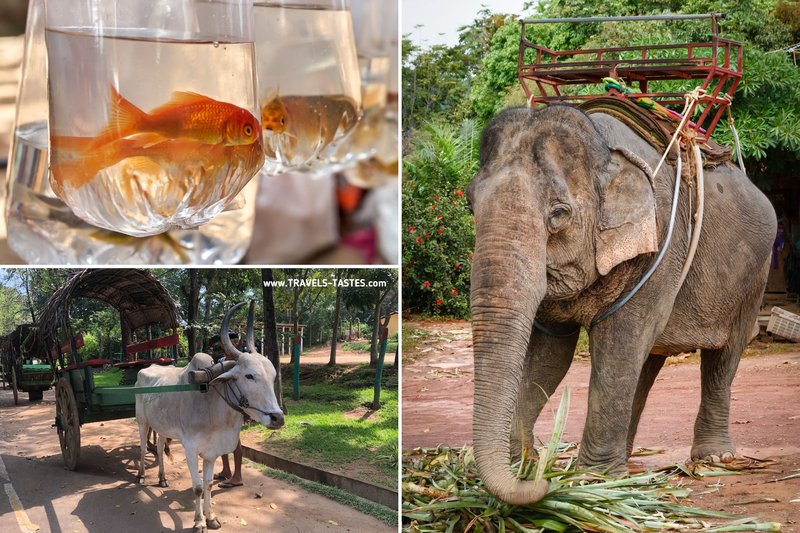
9. LGBTQ+ and Misogyny
Is it safe to travel to Sri Lanka as a same sex couple? Are women safe in Sri Lanka?
These are valid questions. Unfortunately, Sri Lanka is not considered a safe destination for LGBTQ+ visitors. It is a conservative country where homosexuality is illegal and discrimination against the LGBT community exists and discrimination and violence against LGBT individuals are not uncommon. It is important for LGBT tourists to exercise caution and avoid public displays of affection
You can find more information on LGBTQ+ rights on the ‘human dignity trust’ website as well as a gay couple’s experience on travelling Sri Lanka on Euronews.
Another social justice problem is that of gender inequality.
We noticed that ourselves when issues arose: the locals (or our driver) would ignore me but talk to my male partner instead. When we spoke to female (solo or group) travellers, they confirmed men were mostly fine until problems were mentioned or difficult questions were asked. So please be careful out there when travelling and look out for yourself.
Go on a LGBTQ+ friendly tour here* (affil)
10. Family Friendliness
Is Sri Lanka a good destination for families with young children?
I want to preface this by saying that, of course, every family and every child is different, and some may find that Sri Lanka is a perfectly enjoyable destination for their young children. However, if you are looking for amusement parks, playgrounds, children’s pool areas, petting zoos, water parks, western kids menus in restaurants and an overall ‘kids entertainment experience’, a round tour of Sri Lanka might not be the best fit.
That’s not to say that one of the all inclusive beach hotels might not offer at least some of the above - we would advise to double check before booking though. Another challenge could be getting around with strollers or finding changing facilities, see below:
Find the best family friendly tours with our partner TourRadar * (affil)
11. Accessibility
Sri Lanka is a beautiful and diverse country, but unfortunately, it is not the easiest destination for travellers with baby buggies or wheelchairs. Going for a stroll is already a challenge on foot, as roads are narrow, often unpaved and more often than not don’t have a sidewalk, and using a wheelchair or pushing a stroller is even more challenging.
Most cultural sites we visited would be unaccessible for wheelchair users or families with buggy, as they lack features such as ramps, elevators, and accessible restrooms. The same is true for many hotels, guest houses and restaurants.
If you are planning on visiting Sri Lanka and depend on accessibility, make sure to do your in-depth research beforehand.
Find the best accessible tours worldwide here * (affil)
12. Availability of public restrooms
‘Last opportunity to use a washroom’ is not something we want to hear when travelling, especially not when in a country where the local food can have a major impact on your bowel movement.
However, when on tour in Sri Lanka, this can happen frequently.
Public restrooms are not widely available, and quite often you have to resort to using bathrooms in larger supermarkets like Cargill’s. When travelling through the more rural areas, toilets are few and far in between.
As a general rule, public restrooms will not have paper, so make sure to bring your own, and water may not always be available, either.
Where necessary, you can of course stop by the wayside and follow nature’s call in the bushes. For women, I highly recommend always carrying a female urinal * (affil)
13. Derelict Townscapes
If you are looking for quaint little towns with picturesque buildings, trendy cafés and fairytale alleys to stroll along, Sri Lanka may not be the place for you.
As a developing country, its cities and towns vary in terms of development and infrastructure. Some areas may appear run-down and neglected and lack of proper infrastructure, including poorly maintained roads, buildings, and public spaces. The lack of cleanliness and the presence of litter and debris may contribute to the overall derelict feel.
However, it is important to note that the country has a rich culture and history, and many Sri Lankan cities and towns are home to beautiful temples, museums, and other cultural landmarks that add character and aspire to outshine the sense of disrepair and dereliction.

Overall, Sri Lanka is a destination that offers a unique blend of natural beauty, cultural richness, and adventure opportunities. Whether you decide to visit or not, it's important to weigh the pros and cons and make an informed decision based on your own interests and priorities.

Book amazing trips all over the world with our partner TourRadar * (affil)
Did this post answer your questions? Please leave me a comment below if this article was helpful :)
Related Posts
 Traveller Etiquette: 9 DOs & DON'Ts in Buddhist and Hindu Temples
Traveller Etiquette: 9 DOs & DON'Ts in Buddhist and Hindu Temples
 TOP 9 Best Temples you Must Visit in Sri Lanka
TOP 9 Best Temples you Must Visit in Sri Lanka
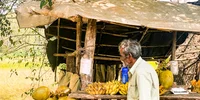 Sri Lanka's Authentic North
Sri Lanka's Authentic North
Comments
There are 0 comments.

